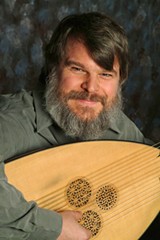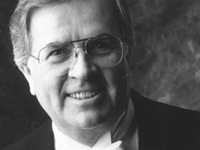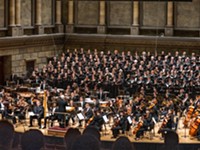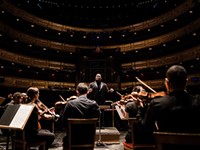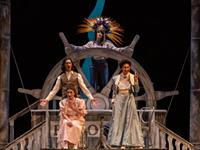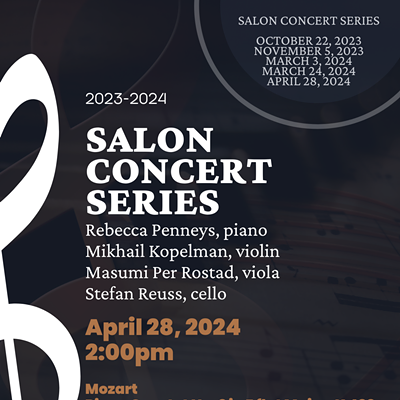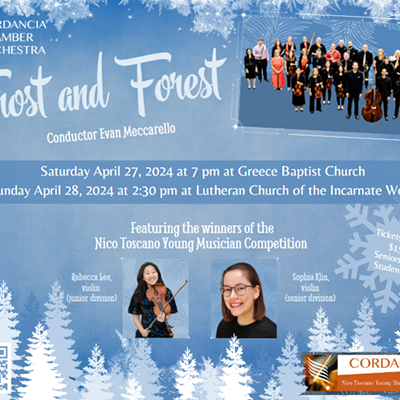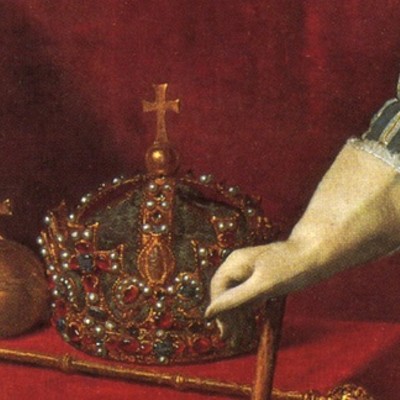[
{
"name": "500x250 Ad",
"insertPoint": "5",
"component": "15667920",
"parentWrapperClass": "",
"requiredCountToDisplay": "1"
}
]
Deborah Fox, Pegasus Early Music's artistic director, says it has long been a dream of hers that the organization perform Claudio Monteverdi's Vespers of 1610, a work she has loved since she first encountered it a couple of decades or so ago as a lute student. This weekend, Fox's dream comes true at the Hochstein Performance Hall, when 25 musicians will take the stage (and a few other locations within the hall) to present this great work. The concert is the culmination of Pegasus's 10th-anniversary season as well.
This grandiose 90-minute piece is not often performed (in fact, it's not known whether Monteverdi himself ever heard it in its entirety). It was last heard in Rochester about 10 years ago at the Memorial Art Gallery. The Vespers has always been recognized as a milestone in musical history by one of history's revolutionary composers, but it is not nearly as well-known as Monteverdi's operas, or other Baroque religious vocal masterpieces.
Despite its rarity, Fox says, "the Monteverdi Vespers is on a par with the other great Baroque sacred works, like Messiah or the Bach Passions. The reason it is done less often, I think, is that to do it properly, you really need to have people who specialize in the 17th-century Italian style."
That style is not only brilliant and florid, it's often dramatic — a reminder that Monteverdi, who lived from 1567 to 1643, was the first great composer of opera (his "Orfeo," the earliest opera to be performed regularly, had its premiere a few years before his Vespers). "There are fast notes upon fast notes for the singers," Fox says. "The score is full of ornamentation — and Monteverdi wrote it all out and insisted it be sung exactly as written."
The virtuosity also extended to the composer. Fox describes this huge score as "a virtuoso display of every kind of music extant at the time." Those musical styles are sacred — including sections of the Vespers (evening prayer service) alongside settings of other Biblical texts including the Magnificat and the Song of Solomon — and secular, with music based on dance rhythms.
Fox points out that before publishing this massive work in 1610, when he was in his 40's, Monteverdi hadn't published any sacred music. The Vespers was probably a collection of pieces Monteverdi had written at different times; some scholars think it was intended as a sort of musical resume for prospective sacred employers in Rome or Venice. (The opening piece, in fact, is stolen in part from the brassy prologue to "Orfeo.")
Whatever its origins, the Monteverdi Vespers is anything but a hodgepodge, says Fox, who points out the piece's dramatic symmetry: large choral sections alternate with compositions for one, two, three, or four voices and different kinds of instrumental accompaniment. These pieces can include everything from medieval chants, to music in a descriptive madrigal style, to elaborate contrapuntal writing.
The choral movements are often written in an antiphonal style — pitting two choral-instrumental groups against each other in counterpoint or echo effects. This requires space, which makes Hochstein Performance Hall an ideal venue. There's even an instrumental sonata, placed in the middle of the piece.
"It all works so beautifully together," Fox says. "And while individual sections are often performed alone, Monteverdi did publish the Vespers as a whole and I think he wanted it performed as a whole."
Getting 25 of the requisite expert early-music performers to put on this piece takes determination, but Fox has put them together, headed by "the perfect person": the Eastman School's lutenist and conductor Paul O'Dette, who recently won a Grammy as well as an Early Music America Award along with his wife, the viola da gamba player Christel Thielmann, who will also be among the instrumentalists.
The rest of the ensemble is equally well-schooled in the Monteverdi style. The brass ensemble includes two cornetti and three sackbuts, predecessors of the modern trumpet and trombone, respectively. And there are nine singers heard in various combinations. Along with the string and brass ensembles, the group will employ not one, but three lutes, to be performed by O'Dette, Fox, and Ryaan Ahmed.
A lot of skill and scholarship goes into preparing a performance of the Monteverdi Vespers, but the result, says Fox, should be "thrilling. I have heard this piece countless times, and I am continually amazed by Monteverdi's originality and his imagination."
Speaking of...
-
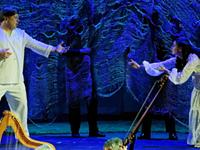
Pegasus Early Music’s ‘L’Orfeo’ finds a muse in the pandemic
Aug 25, 2022 -

A classical conundrum
Sep 22, 2020 -
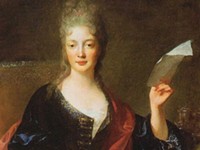
CLASSICAL | Pegasus Early Music: 'Nevertheless, She Persisted'
Jan 29, 2020 - More »
